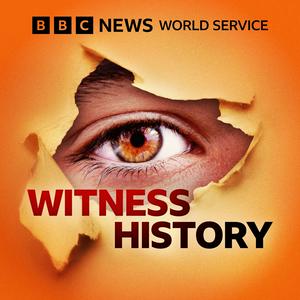In 1898, the British founder of modern nursing, Florence Nightingale, invited the Muslim leader Aga Khan III around to her London home for tea.
They were two of the most famous figures of the 20th century and their discussion was wide-ranging, touching on faith, healthcare and even Queen Victoria.
The Aga Khan, Sir Sultan Muhammad Shah, spoke to the BBC about the meeting in 1950.
This programme was produced and presented by Rachel Naylor, in collaboration with BBC Archives.
Eye-witness accounts brought to life by archive. Witness History is for those fascinated by and curious about the past. We take you to the events that have shaped our world through the eyes of the people who were there.
For nine minutes every day, we take you back in time and all over the world, to examine wars, coups, scientific discoveries, cultural moments and much more.
Recent episodes explore everything from how the Excel spreadsheet was developed, the creation of cartoon rabbit Miffy and how the sound barrier was broken.
We look at the lives of some of the most famous leaders, artists, scientists and personalities in history, including: the moment Reagan and Gorbachev met in Geneva, Haitian singer Emerante de Pradines’ life and Omar Sharif’s legendary movie entrance in Lawrence of Arabia.
You can learn all about fascinating and surprising stories, like the invention of a stent which has saved lives around the world; the birth of the G7; and the meeting of Maldives’ ministers underwater. We cover everything from World War Two and Cold War stories to Black History Month and our journeys into space.
(Photo: Aga Khan III, June 1924. Credit: MacGregor / Topical Press Agency / Getty Images)


